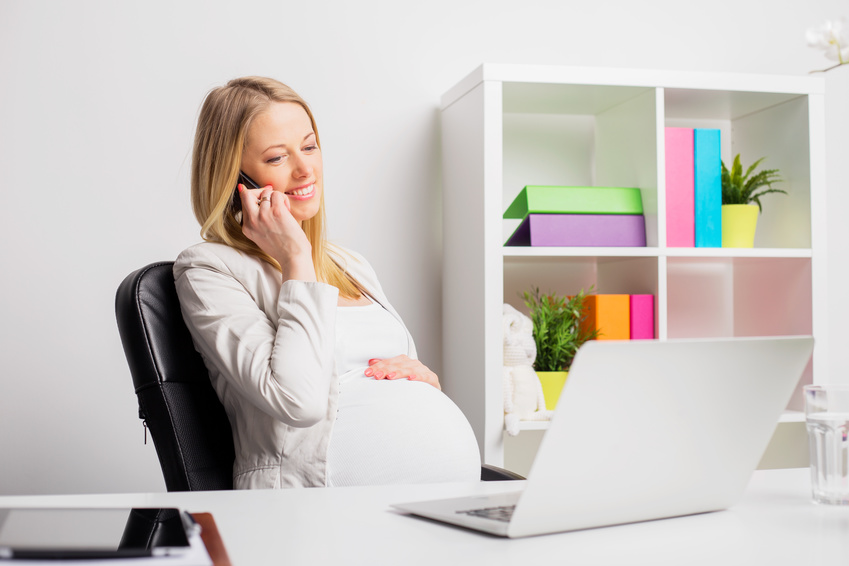It’s no longer news that more moms than ever before are returning to work. However, many new moms do not find it easy to juggle both a successful career and motherhood. Successful moms with flourishing careers give it all it takes to balance both areas of life. Even though many moms find themselves in this conundrum, getting proper advice on the subject is hard to come by—and the inability to balance the two can have detrimental emotional, psychological, and physical consequences.
Lisa Weinberger, a mother and lawyer, says that proper planning, setting achievable goals, and prioritizing tasks in both the work and home spheres will help a 21st century mom achieve a balanced and healthy life.
Let’s dig deeper into this problem to find out how exactly working moms can strike this balance.
- Preparation
As a new mom to be or one already with children, you’ll need to prepare your mind for what this life-changing period will look like. It’s always important to:
- Eat healthy but indulge every now and again. Having healthy eating habits, especially in the first trimester of pregnancy, is of utmost importance. However, satisfying your cravings is often a good thing as your body will need more sugars, fat, and nutrients to nurture your growing baby. But just like with any indulgence, make sure not to go to excess.
- Be proactive about your pregnancy and post-pregnancy routine at work. Depending on the type of employer you have, it’s advisable to let your employer know about your pregnancy ideally after the first trimester. For example, think about if you’ll want to take a longer unpaid maternity leave after the paid period, or if working part-time might suit your new schedule better. Discuss what will make you less stressed at work during your pregnancy period.
- Take extra care of your health on purpose. Rest as much as you can and exercise as often as you can. Fitness Expo has a range of both standard and light equipment that can serve this purpose well. Exercising does not always mean lifting heavy weights. Exercises like walking, light jogging, and stair climbing are also a few ways to ensure that your body remains fit without wearing out often. Postpartum, it’s likely you won’t be able to exercise much in the first weeks or months, so you’ll want to get a quality abdominal binder to keep your tummy tucked in place and help slim it back down.This will also help combat backaches, sleeping disorders, fatigue, and leg swelling, all of which are common pregnancy symptoms.
- Ask for help. You should speak up and seek help from your partner, older kids, family members, friends, colleagues, and sometimes strangers. Don’t feel embarrassed to ask, and remember that using your natural support system will go a long way in relieving any excess stress.
- Depression
Sometimes pregnant women become overly worrisome and anxious, often leading to depression. Anxious thoughts and feelings can make you unable to focus at work and at home during pregnancy. This is most likely due to the tons of new hormones flooding your body and mind. However, if you notice that negative thoughts and feelings are invading your mind for more than a few weeks, consider telling your health practitioner.
What about postpartum depression? Not only is this a physiological issue—some women feel immense guilt, shame, and despair when they cannot balance their new work life with new motherhood. Take the case of Catherine Bailey, a vibrant female lawyer and mom, who, on returning to work about 6 months after delivery, couldn’t take on the pressure of juggling both her demanding career and her family life. It was suspected that she entered into postpartum depression due to the pressures of not having a balance at work and at home as a mother of three.
While this isn’t always a problem that can be overcome with the right mindset, you can first try to address depression by visiting a psychologist and working on coping mechanisms in times of stress. However, sometimes more extreme methods of treatment are necessary for such a serious condition. Please note that depression kills and once the seeds have been sown, it can take very little time before it takes over the soul. In essence, signs of depression should be nipped at the bud by seeking help from experts as quickly as possible.
- Advice
For the 21st century working mother, some sources of advice include healthcare professionals, family members, friends with children, and support groups online. The good thing is that all these different sources offer different types of support—you can probably best rely on friends and family for emotional support, but if you’d like to hear some third-party perspectives, maybe join a working mother’s online support group. Remember, however, that the best medical advice should be sought from your healthcare practitioner or doctor as all women have different needs, and what works for one mother may not work for another.
On a final note, living a happy and fulfilled life as a working mom while maintaining a work/life balance is an actionable, deliberate state of mind. You must be determined to create the right harmony between these different facets of life in order to achieve stability.












